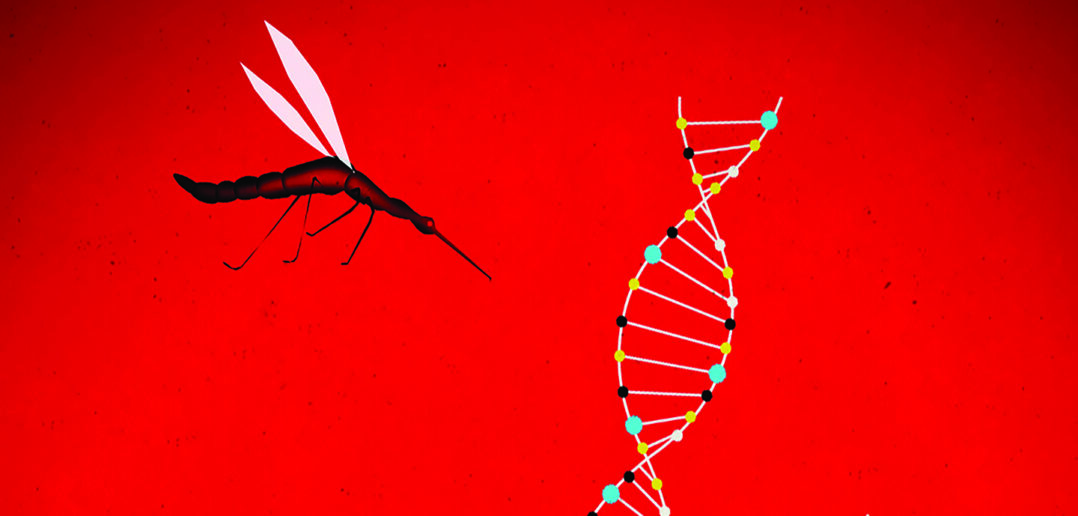Researchers zero in on a new strategy to fight malaria.
Every two minutes, a child dies of malaria—a global tragedy that has motivated Jonathan Kurtis ’89 PhD’95 MD’96 to understand the mosquito-borne parasite since his student days.
Now the Stanley M. Aronson Professor and chair of pathology and laboratory medicine at Brown believes his lab has discovered a promising new strategy for combating the disease. In April they reported in Nature that they had identified an antibody to a malaria protein that appears to protect resistant children from severe infection.
“PfGARP is a protein that the parasite makes on the surface of the red [blood]cell for sensing host illness,” Kurtis says. “If the host gets too ill, PfGARP gets activated, and that shuts down parasite replication.
When antibodies bind to PfGARP, they cause the parasite to die.” Kurtis calls this a “kill switch.”
The research team hypothesized that vaccinating individuals with PfGARP to generate the antibodies, or directly infusing PfGARP antibodies, would protect them against severe malaria, and they developed and tested preliminary versions of those vaccines.
“We demonstrated in two independent studies in nonhuman primates that vaccination with PfGARP protects against a lethal malaria parasite,” Kurtis says. “What’s exciting is that this is a vaccination strategy that attacks malaria in a way that it has never been attacked before—one in which the parasite becomes complicit in its own demise. We are hopeful that this vaccine, perhaps combined with other malarial antigens, will translate into a strategy that can help prevent severe malaria in people.”
Testing of a human vaccine is likely years away, and there’s no way to be certain it will work. But by looking for the factors that contribute to naturally occurring disease resistance, Kurtis and his team hope it will prove effective where other approaches have not.




